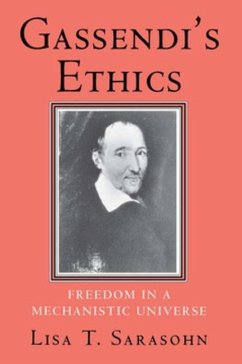In this highly original account of Bishop George Berkeley's epistemological and metaphysical theories, George S. Pappas seeks to determine precisely what doctrines the philosopher held and what arguments he put forward to support them. Specifically, Pappas overturns accepted opinions about Berkeley's famous attack on the Lockean doctrine of abstract ideas. Berkeley's criticism of these ideas had been thought relevant only to his views on language and to his nominalism; Pappas persuasively argues that Berkeley's ideas about abstraction are crucial to nearly all of the fundamental principles that he defends.
Pappas demonstrates how an adequate appreciation of Berkeley's views on abstraction can lead to an improved understanding of his important principle of esse is percipi, and of the arguments Berkeley proposes in support of this principle. Pappas also takes up Berkeley's widely rejected claim to be a philosopher of common sense. He assesses the validity of this self-description and considers why Berkeley might have chosen to align himself with a commonsense position.
Pappas shows how three core concepts-abstraction, perception, and common sense-are central to and interdependent in the work of one of the major figures of early modern Western thought.
Pappas demonstrates how an adequate appreciation of Berkeley's views on abstraction can lead to an improved understanding of his important principle of esse is percipi, and of the arguments Berkeley proposes in support of this principle. Pappas also takes up Berkeley's widely rejected claim to be a philosopher of common sense. He assesses the validity of this self-description and considers why Berkeley might have chosen to align himself with a commonsense position.
Pappas shows how three core concepts-abstraction, perception, and common sense-are central to and interdependent in the work of one of the major figures of early modern Western thought.
Dieser Download kann aus rechtlichen Gründen nur mit Rechnungsadresse in A, D ausgeliefert werden.









